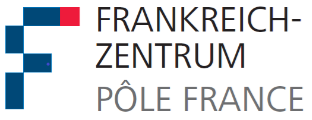Democratic Vistas: Transatlantic Anxieties in an Age of Populism
Democratic Vistas: Transatlantic Anxieties in an Age of Populism
Prof. Dr. Till van Rahden, Université de Montréal
Zeit: Mittwoch, 7. Juli 2021, 18.00–20.00 Uhr
Ort: online via Zoom
Veranstaltung in englischer Sprache.
Im Rahmen der Vortragsreihe "Populismus - Inhaltliche Dimensionen, internationale Perspektiven und politische Realitäten" der AG Populismus der Universität des Saarlandes in Kooperation mit dem Frankreichzentrum, der Arbeitskammer des Saarlandes, dem Kino 8 1/2 und der Landeshauptstadt Saarbrücken.
Abstract zum Vortrag
After the Cold War ended, liberal democracy was taken for granted. Now it is in crisis: many citizens distrust parliamentary politics, the people's parties all over Europe are losing members and votes, Twitter and Instagram are crowding out public debates and civility. To invoke Walt Whitman is to challenge the sense of despair that informs recent conversations. "Democratic Vistas", penned in 1870, against the background of the American Civil War, articulated a conception of democracy as a way of life. It "is only of use there that it may […] come to its flower and fruits in manners, in the highest forms of interaction between men, and their beliefs—in religion, literature, colleges, and schools—democracy in all public and private life." Like Whitman, I will argue that it might prove useful to explore what keeps democracies alive. Postwar Germany’s democratic miracle provides us with a fascinating case study to think about democracy as a way of life and to better understand the cultural foundations of democracy in aesthetics and everyday life. I contend that no matter how stable a democratic government might appear to be, without forms and spaces that allow for democratic experiences in everyday life it will wither away.
Lebenslauf
Till van Rahden teaches modern European history at the Université de Montréal where he held the Canada Research Chair in German and European Studies from 2006 to 2016. Since January 2021 he is also a Non-Resident Senior Fellow at the "Forschungskolleg Humanwissenschaften", an Institute for Advanced Studies of the Goethe University. In 2018, he was a LFUI-Guest Professor at the University of Innsbruck, and in 2016, he held fellowships at the "Leibniz Institute for European History" and the "Institut für die Wissenschaften vom Menschen". He specializes in European history since the Enlightenment and is interested in the tension between the elusive promise of democratic equality and the recurrent presence of moral conflicts.
In 1993, he received an M.A. in American history from The Johns Hopkins University, and in 1999, he completed his dissertation at the University of Bielefeld which received the "Fraenkel Prize in Contemporary History" and was published as Jews and other Germans: Civil Society, Religious Diversity and Urban Politics in Breslau, 1860-1925 (The University of Wisconsin Press, 2008). He has co-edited Juden, Bürger, Deutsche: Zur Geschichte von Vielfalt und Differenz 1800-1933 (Mohr Siebeck, 2001), Demokratie im Schatten der Gewalt (Göttingen, 2010), Autorität: Krise, Konstruktion und Konjunktur (Fink, 2016); Emanzipation und Recht: Zur Geschichte der Rechtswissenschaft und der jüdischen Gleichberechtigung (Klostermann, 2021). Recent publications include: "Lumpen sammeln: Siegfried Kracauer und die Geschichte des 19. Jahrhunderts", in Historische Zeitschrift 307 (2018), pp. 319-340, Demokratie: Eine gefährdete Lebensform (Campus, 2019), Vielheit: Juden und die Ambivalenzen des Universalismus seit der Aufklärung (Hamburger Edition, 2022).


